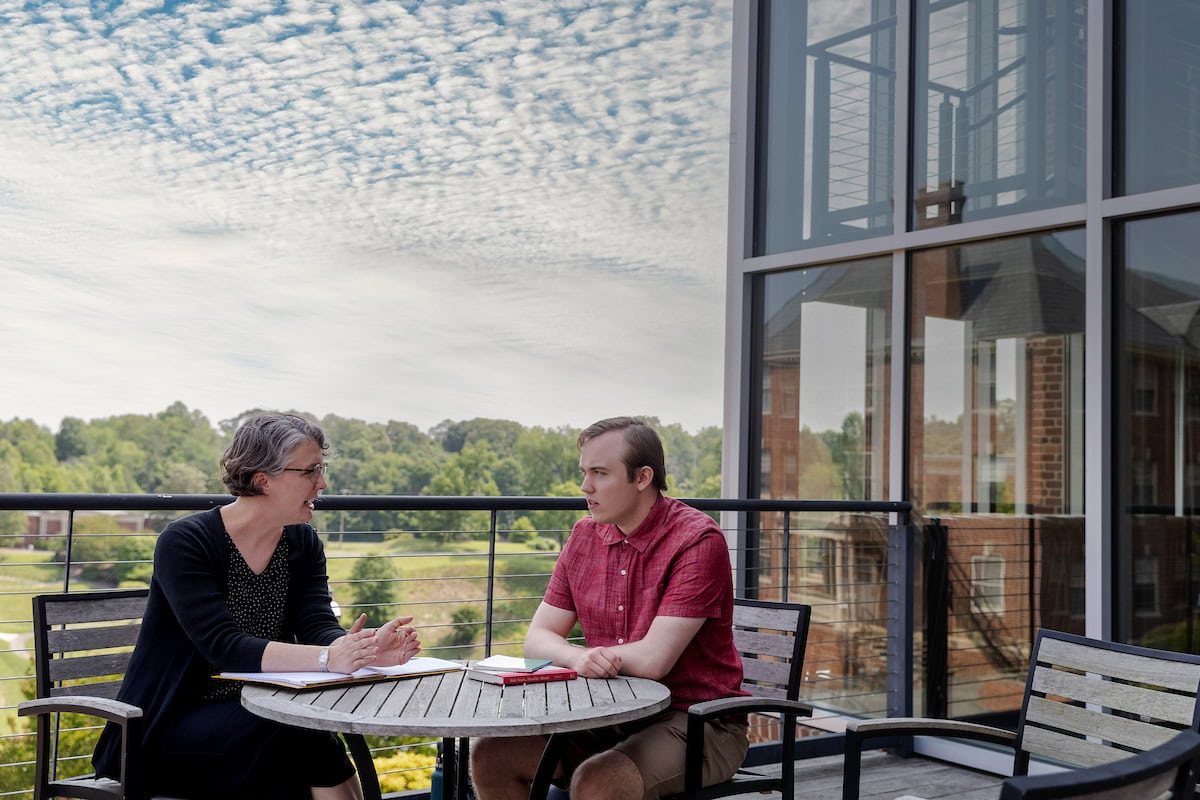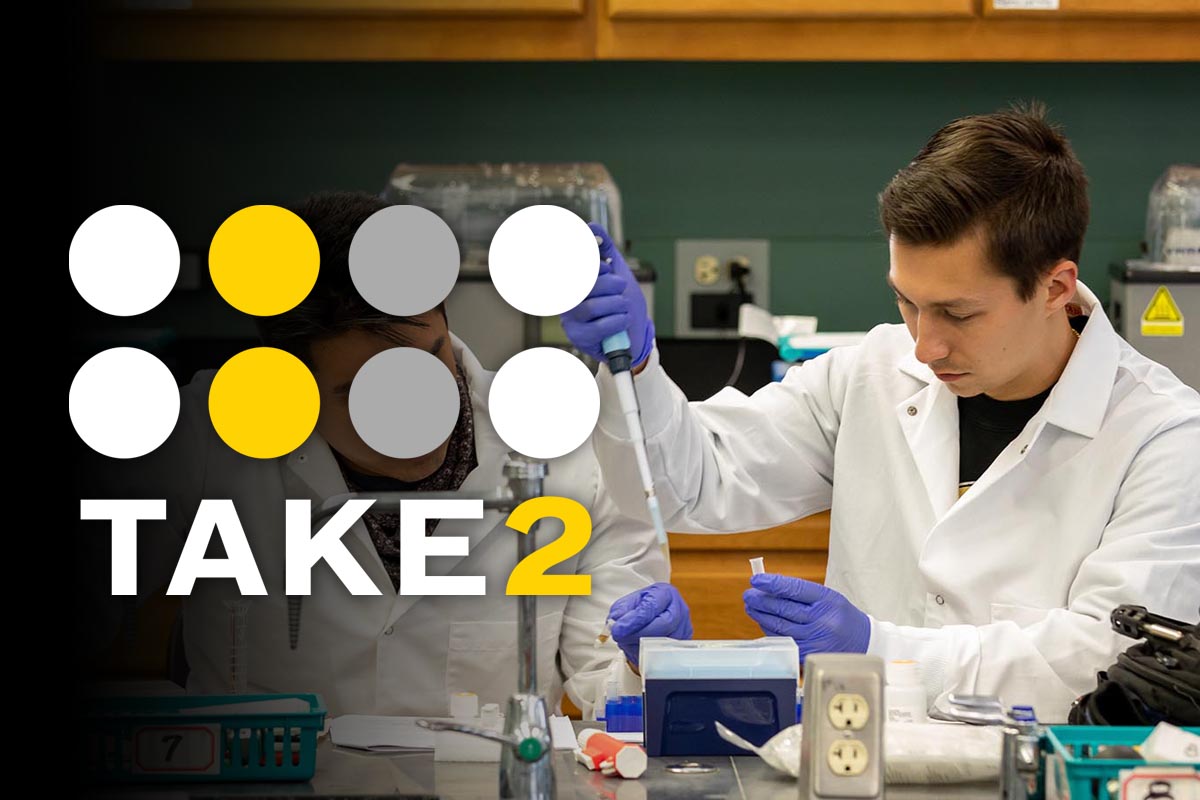Randolph student exploring interfaith dialogue through summer research
This story is part of an ongoing series featuring the work of faculty and students participating in Randolph’s Summer Research Program.

Comparative philosophy professor Kaija Mortensen and Zach Bishop ’24 are working together for Randolph’s Summer Research Program.
This year’s Summer Research project is personal for Zach Bishop ’24.
“Since I started at Randolph, I’ve been trying to figure out the things that I believe,” said Bishop, a comparative philosophy and creative writing double major. “I think, ultimately, we’re trying to help individual people acknowledge different faiths and religions. But my goal, in part, is trying to get people to have faith in people–that we’re capable of more than just disagreeing with each other.”
The project, which is under the mentorship of comparative philosophy professor Kaija Mortensen, uses the work of two philosophers, William James and Ludwig Wittgenstein, to consider interfaith dialogue, with the aim of creating strategies to help people with various religious beliefs and nonbeliefs.
The idea grew out of Mortensen’s Faith and Doubt course last October and conversations Bishop had with a fellow student.
“The two of us held some very opposite positions on things, but we were able to talk to each other in ways that were respectful and not demeaning,” he said. “We talked outside of class, too, about how we respected each other’s positions even if we couldn’t really understand them. That’s sort of where it started. I wanted to take those conversations out of the classroom and into the world.”
Bishop is doing interviews, asking people about the obstacles they face in discussing their faith with others. They are also reading the work of both James and Wittgenstein.
In his essay, “The Will to Believe,” pragmatist James writes that in cases like religious belief, where we lack objective evidence to prove our beliefs true, it is a mistake to think that we are required to wait for evidence before we believe.
“He notes that whether we wait for the evidence, or take the risk to believe something that might be false, we are taking a risk,” Mortensen said. “We might believe something false, but we also might miss out on finding truth. James urges us to ‘delicately and profoundly’ respect one another’s mental freedom to take such risks.”
These words inspired Bishop. He wanted to figure out if and how James’ view could be put into practice in individual conversations.
Wittgenstein, for his part, claimed that people of differing faiths play different “language games.”
“A lot of it came from those two ideas,” Bishop said, “aiming for connection and also understanding why we can’t get there.”
Mortensen encouraged Bishop to pursue it as a summer research project because she is using Wittgenstein and James to think about similar issues in her own philosophical work.
“We are reading the same texts, spending time working independently on our projects, and then meeting to talk things through to help each of us develop related ideas in our individual projects,” she said. “Not only do these conversations help us both philosophically, but we are also engaging in the very interfaith dialogue we are writing about.”
They are also reading Eboo Patel’s book, Interfaith Leadership: A Primer, which offers strategies to bring together people of different faiths.
But where Patel’s focus is on developing leaders to transform communities, Bishop and Mortensen’s Summer Research is on the individual.
“We’re trying to create a toolbox for the average person to better themselves,” Bishop said. “With William James, a lot of his philosophy is self help. And that’s the vein that this is in: What are ways you can change your attitudes toward other people’s beliefs that will end up with you treating them better? And, ideally, they’ll treat you better in the same way. The improvement of the individual leads to the improvement of the community.”
Tags: comparative philosophy, summer research 2023, Summer Research Program
